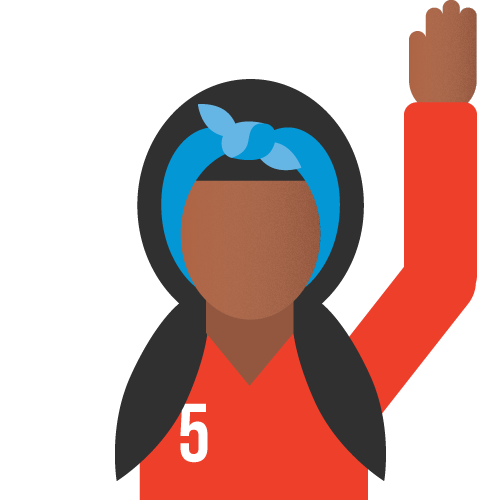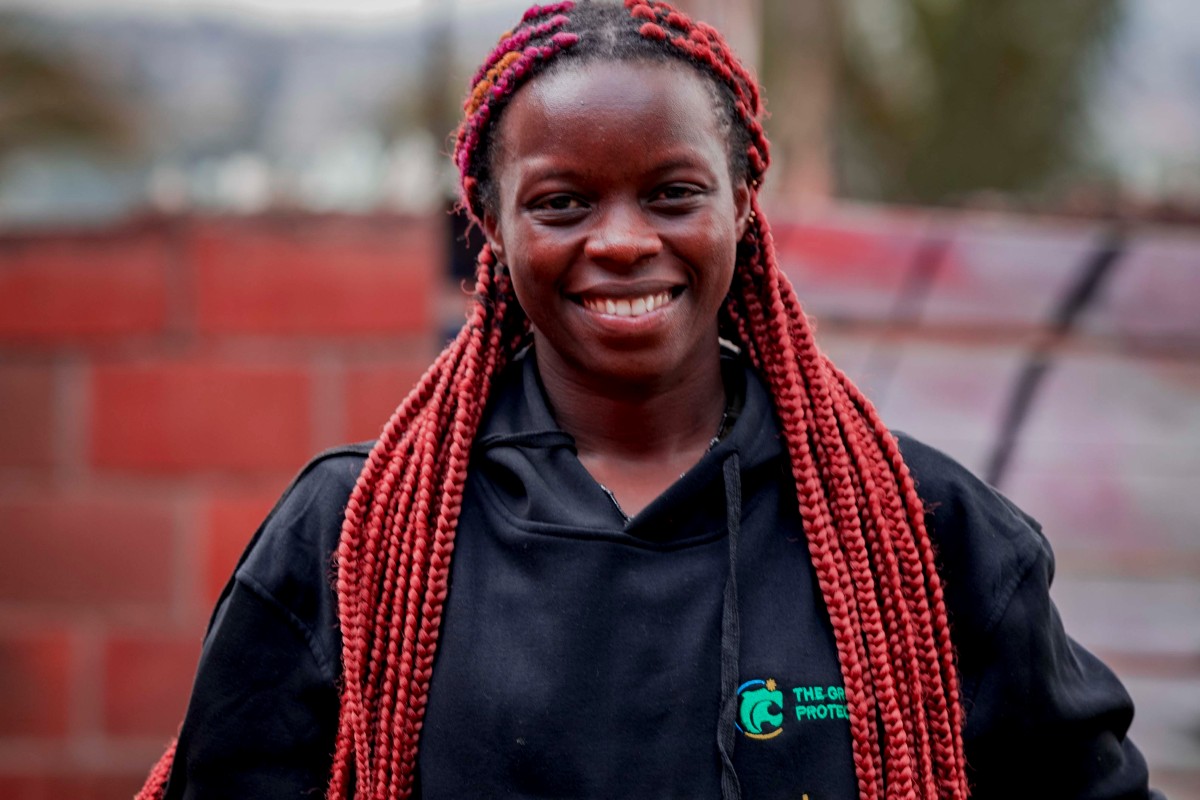Three actions you can take to promote women in science:
- Inspire young girls to pursue careers in science
- Consider work modalities for women in science; end gender-based violence in the science sector
- Spotlight women-scientists in media, put them on the cover page of magazines.

I am Generation Equality, because…
I am an eco-feminist (believing that we can act just for our ecosystem and that women can lead the change), an impact-driven self-motivated actor in the climate change and environment sector.
In 2017, I started what is known today as The Green Protector (AKA The Green Fighter). The organisation aims to increase active youth engagement in protecting the environment through advocacy, community projects, environmental education, and capacity enhancement. This journey was mainly driven by the understanding that I could use my experience, ambition and be a part of a solution for my community.
To date, The Green Protector has more than 3,500 beneficiaries, conducted 10+community activities, held six young negotiators following climate change discussion, offered 5+ capacity enhancement, and wrote +3 community projects.
In 2020, despite the global challenge of COVID-19, it was more apparent that climate change impact is more devastating for frontline communities, especially youth, women located in the global south. Along with my colleagues, we started what is currently known as The Loss and Damage Youth Coalition. The LDYC is a global coalition of +300 members from +35 countries aiming to advocate the need to address loss and damage. We do this by pressuring global leaders to take action by sending open letters, sharing the lived experience of climate change impact in storytelling, and training youth to know more on how to take action on loss and damage.
The gender gap in science and technology holds women back…
From my experience, as a female holder of a bachelor’s degree in Water and Environmental Engineering from the University of Rwanda, being a researcher, especially as a global south female, is challenging but not impossible.
I am grateful to belong in a global pool of women researchers especially acting in the climate change sector, I was able to conduct my first research in 2021. From what I can say, it is hard for women to feel empowered to take research career because even if you love it, the limitations are enormous. For example, suppose the challenge won’t be in your ability to do a terrain data collection. In that case, it will be one the presumption that women will conduct research longer because we have so much additional pressure (society, households, education limitation, etc).
For me to boost the number of women who pursue science is to empower and create a “women of science” model for young girls in all aspects of science. The fact that the number of women exists at a low number is terrible, but the fact that women can’t inspire young girls in the field is problematic.
My message to the leaders tackling climate change is…
“If you can’t see the reality of how climate change is a reality, please listen to the science because the climate crisis is a reality”. It is known that women in the climate change sector are minimal, but there is still more that can be done. If we want to increase the number of women in science, increase the number of women voices at the table, and enhance women's abilities.
Ineza Grace is a Rwandan eco-feminist and environmental engineer.

